Our Team
The GendV Project is based in the Department of Sociology at the University of Cambridge and is in collaboration with Co-Investigators from University of Johannesburg, Shiv Nadar University, Delhi and University of Oxford.
Principal Investigator
Prof Manali Desai
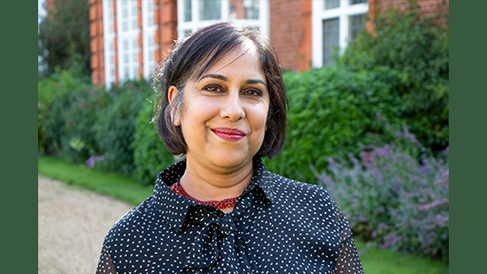
Manali Desai received her PhD in Sociology from the University of California, Los Angeles where she trained as a comparative and historical sociologist. Her work encompasses the areas of parties and political articulation, social movements, ethnic and gendered violence, and post-colonial studies.
Her current research, which is funded by the ESRC/GCRF Large Grant (£1.76 million), is a comparative qualitative project titled Urban Transformation and Gendered Violence in India and South Africa. Manali's first book State Formation and Radical Democracy in India, 1860-1990 (2007) was a historical analysis of the emergence of two different welfare regimes in India where social democratic parties have ruled consistently since independence.
She has also published her research in the American Journal of Sociology, Social Forces, Social Science History, Comparative Studies in Society and History, Journal of Historical Sociology and Critical Asian Studies, among others. Manali has co-edited two books titled States of Trauma: Gender and Violence in South Asia (2009) and Building Blocs: How Parties Organize Society (2015).
Manali is Head of the Sociology Department at the University of Cambridge.
Co-Investigators
Prof Sanjay Srivastava
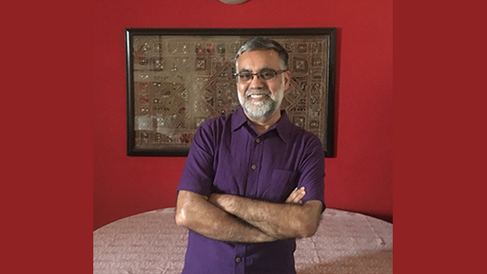
Sanjay Srivastava is British academy Global Professor at University College London and Professor of Sociology at the Institute of Economic Growth, Delhi. His research spans across themes of urban cultures, masculinities, consumerism, globalisation, new cultures of work and social theory.
His publications include Constructing Post-colonial India: National Character and the Doon School (Routledge, 1998); Passionate Modernity, Sexuality, Class and Consumption in India (Routledge, 2007); Sexuality Studies (OUP, 2013); Entangled Urbanism: Slum, Gated Community and Shopping Mall in Delhi and Gurgaon (OUP, 2015); Critical Theme in Indian Sociology (SAGE, 2019, co-editor); and (Hi)stories of Desire: Sexualities and Culture in Modern India (co-edited, Cambridge University Press, 2019).
His creative works include the documentary film Kotla Walks: Performing Locality (2006), funded by the Japan Foundation and a collaboration with the ethnographic film-maker David MacDougall in the making of a film based around his research on schooling (Doon School Chronicles).
Prof Kammila Naidoo
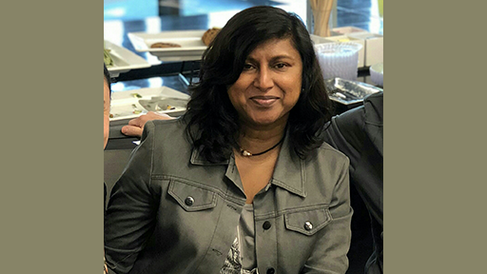
Kammila Naidoo is Professor of Sociology and is based at the University of Johannesburg, South Africa. She attained her PhD in Sociology at the University of Manchester, UK, in 2001. Her work has been primarily in the intersecting areas of gender relations, family, intimate partner violence, sexual and reproductive dynamics and the changing politics of communities-in-transition. She has taught, supervised and mentored a large number of graduate students on topics related to these research strands. She has published in journals such as Current Sociology, African Sociological Review and TheHistory of the Family and has produced a monograph, Fragmented Families, Poverty and Women’s Reproductive Narratives in South Africa (2009). She has served as a journal editor of the South African Review of Sociology, guest editor of special issues (e.g. in Sage Open, Development Southern Africa, Journal of Sociology and Social Anthropology) and has sat on a number of review panels, both for universities and institutional bodies. She is currently Executive Dean of the Faculty of Humanities.
Dr Lyn Ossome
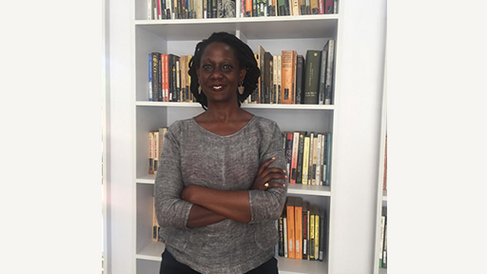
Lyn Ossome is Senior Research Fellow at the Makerere Institute of Social Research (MISR), Makerere University. She received her PhD in Political Studies from Wits University. Her specializations are in the fields of feminist political economy and feminist political theory, with particular research interests in land and agrarian studies, gendered labour, queer feminist histories and the political economy of gendered violence. She is the author of Gender, Ethnicity and Violence in Kenya’s Transitions to Democracy: States of Violence (2018) and co-editor of the forthcoming volume Labour Questions in the Global South (2020), and is is Associate Editor of Agrarian South: Journal of Political Economy and Co-Editor of the Journal of Contemporary African Studies. She has been a Visiting Scholar at the National Chiao Tung University and Wits University, Visiting Presidential Fellow at Yale University, and is a Senior Research Associate at the University of Johannesburg. She serves on several boards including the Strategic Initiative for Women in the Horn of Africa (SIHA Network), the Council for the Development of Social Science Research in Africa (CODESRIA), and the International Association for Feminist Economics (IAFFE).
Prof Nandini Gooptu
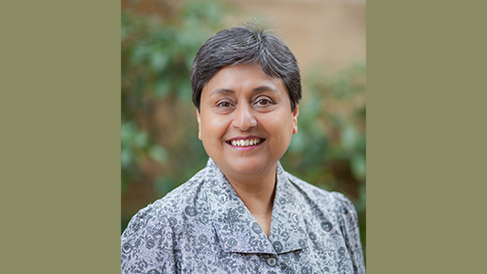
Nandini Gooptu is Associate Professor of South Asian Studies at ODID and Fellow of St Antony's College. She was Head of Department between 2012 and 2016.
Educated in Calcutta and at Cambridge, and trained as a social historian, she is the author of The Politics of the Urban Poor in Early-Twentieth Century India (Cambridge University Press, 2001), editor of Enterprise Culture in Neoliberal India (Routledge, 2013), and joint-editor of India and the British Empire (Oxford University Press, Oxford History of the British Empire series, 2012).
While her past research has been on colonial India, her current research is concerned with social and political transformation and cultural change in contemporary India in the wake of economic liberalisation and globalisation.
She has published articles on a variety of subjects, including caste, communal and religious politics, urban development, poverty and labour, work and employment, media and politics, and social movement of sex workers. She has taught at Cambridge and Oxford Universities.
She is a member of the South Asia Panel of the British Academy and of ESRC’s Peer Review College. She is the editor of the South Asian Diversity and Plurality book series of Anthem Press and a member of the editorial board of the South Asian History Series. She is one of the associate editors of Oxford Development Studies.
Research Associates
Dr Shannon Philip
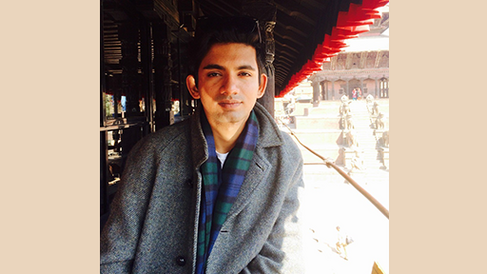
Shannon is an urban sociologist and ethnographer currently researching gender and urban transformations in post-apartheid South Africa. He is interested in the intersections of race, gender, sexualities, masculinities, class and development in the urban context of Johannesburg. Before coming to Cambridge, Shannon completed his PhD at the University of Oxford where he used a combination of longitudinal ethnographic methods and visual analysis to study urban youth, masculinities, gender, development and the policing of public bodies in neoliberal India. His post-doctoral research on South Africa builds and expands several themes of his doctoral research and looks at India and South Africa comparatively.
Sinethemba Sidloyi
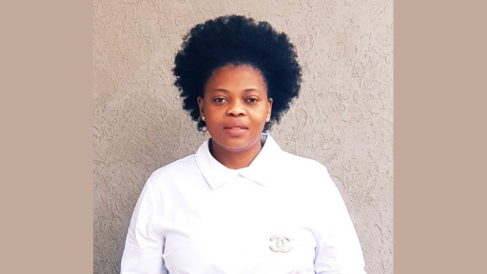
Sinethemba Sidloyi completed a Doctorate in UJ (Sociology), focusing on the lives, livelihoods and daily struggles of black, working-class women. She is currently a Research Associate at UJ. She holds a BSocSci degree in Human and Societal Dynamics at the UOFS, Honours and Masters degree in Gender Studies at the University of Pretoria. She taught Sociology at the University of KwaZulu-Natal; has published articles, book chapter and has presented papers in both local and international Sociological conferences. Her work focuses on Intersectional Township Habitus, Vulnerabilities and Instrumentalities among black working-class women, The production and reproduction of experiences of privilege and oppression in South African Township Spaces.
Adeagbo, Morolake Josephine

Morolake is a Postdoctoral Fellow at the University of Johannesburg, South Africa. Her primary area of expertise is Family Sociology, with a particular interest in gender studies, sexual and reproductive health, HIV/AIDS, race, maternal health. Morolake is also passionate about feminist studies and women related issues. As an early career researcher, Morolake has authored and co-authored scientific publications both in local and international peer reviewed journals. With the aim of offering sociological analysis on related research, she continues to build original findings and recommends interventions that aim at ameliorating lives and impacting new policy for relevant agencies working with any marginalised groups in South Africa. Morolake is currently involved in a collaborative research that uses qualitative methods to comparatively explore the multiple determinants of gendered violence against women in two major cities in both South Africa and India.
Dr Pratichi Majumdar
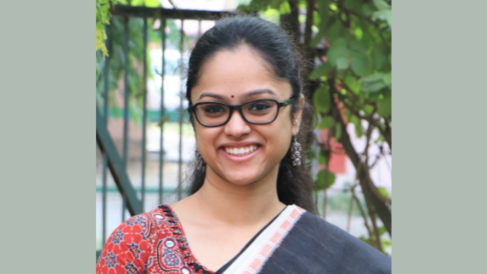
Pratichi is a sociologist and qualitative researcher from New Delhi, India. She is a gold-medalist in Master of Sociology from the Delhi School of Economics, and has done her M. Phil and Ph.D. from Jawaharlal Nehru University. Her Doctoral thesis is on ‘Storytelling on the Internet: A sociological Study of Popular English and Hindi Webseries’ where she has studied new story-forms and audience participation emerging on the Internet. She is currently working with the GenV Project as part of the India Team at the Institute of Economic Growth in New Delhi, using a combination of ethnographic and cyber-ethnographic methods of research.
Pratichi has previously taught Sociology at the Sri Venkateswara College, University of Delhi and the Manav Rachna International Institute of Research and Studies. She has also worked on various research projects around issues of gender, media, markets and identities, independently and with various organizations including the National Human Rights Commission, Krishnaraj Foundation, Human Rights Law Network among others. Her areas of interest include New Media and Popular Culture, Gender and Human Rights, Sociology of technology and Sociology of Development.
Besides academics, Pratichi is a trained Hindustani classical singer, an avid reader, an eager cinephile, and keen traveler.
Taanya Kapoor

Taanya is currently pursuing her DPhil in International Development from the University of Oxford. Her thesis focuses on the social policies used by the Indian government to combat gender-based discrimination, in particular, the use of cash transfer schemes which rely on the disbursement of monetary incentives and imposition of conditionalities to alter parental perceptions of daughters. Her work is situated in the larger universe of the financialization of intimate lives and raises ethical and moral concerns with the use of such schemes in patriarchal contexts like India, their impact on gendered norms and practices, and the manner in which they create the figure of the ‘girl child’ as a subject of political and social investments.
Trained as a qualitative researcher, Taanya has previously worked with development organisations like the UNFPA, Centre for Policy Research, Action Aid India on gender and development issues and has taught law and politics at Ashoka University, New Delhi. Her MPhil thesis focused on questions of agency and autonomy for women in multicultural settings and the State response to demands for minority group rights, problematizing notions of ‘resistance’ and ‘consent’ in women’s lives. Taanya hopes to bring her experience of gendered debates and working with women in the Indian context to this project to look at the idea of gender violence in more nuanced, embedded ways.
Tumi Mampane
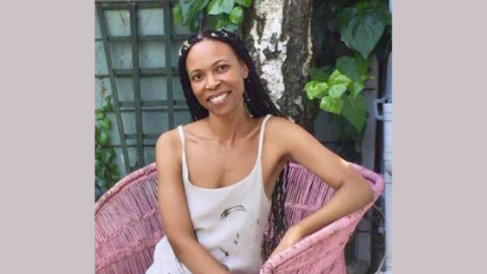
Tumi Mampane is an African feminist scholar, public speaker, and a lecturer. Her MA dissertation in Communication Studies is titled “Pentecostal Charismatic Constructions of Femininity in Alexandra Township”. She is now a PhD Candidate at the Centre for Women and Gender Studies, Nelson Mandela University, affiliated with the NRF Research Chair on African Feminist Imagination. Her research interests include cultural and media studies, popular culture, African Pentecostalism, discourse analysis, narrative analysis, (auto)ethnography; and feminist theory.
Rupal Anand
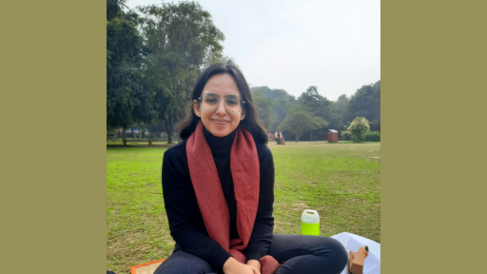
Rupal is a research assistant on the GendV Project, working in Gurgaon, India. Her research interests revolve around understanding urban and post-conflict development, ethnic and gendered violence, and grassroot initiatives of peacebuilding. She holds a master's degree from Jawaharlal Nehru University, India.
Anjali Krishan
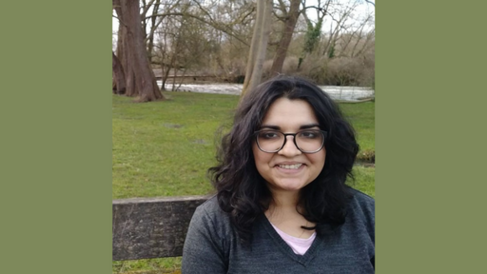
Anjali is a cultural anthropologist researching gender, emotions, and ethics during a time of rapid urban transformation in India. She is interested in how gender relations shape both the recognition of suffering as well as the ethical response to this suffering. Anjali is pursuing her DPhil at the University of Oxford. In her doctoral research she used evocative ethnographic methods to capture how middle-class married women tell stories about the suicides of women like them. This research examined how women understood what is a life worth living, critically engage with existing ethical norms, and comment on gendered suffering.
Media Consultant and Film Director, Delhi
Dr Rangan Chakravarty
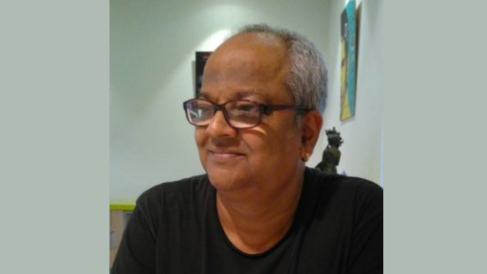
Dr Rangan Chakravarty is the media consultant and film director on The GendV Project, working in Delhi, India. He is the Creative Director off Surinder Films in Kolkata, Brand and Corporate Communication Consultant for Reliance Industries India, Faculty at Calcutta Media Institute and Guest Lecturer at IIM Lucknow. He received his D.Phil in Media Studies at Sussex University, UK.
Creative Artist, Johannesburg
Philiswa Lila
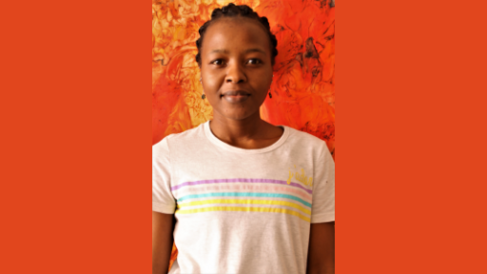
Philiswa Lila (b. 1988) is a visual artist, curator and scholar fascinated by the socially relevant and timely issues of authorship and agency. She is interests are in memory histories and theories of personal identities. Lila works across disciplines like painting, installation and performance art, which includes the use of mediums such as animal skin (sheep, goat and cow), beading, wood, paper, photography, video and poetry.
She has a Master’s in Art History from Rhodes University, an Honours in Curatorship from University of Cape Town and a B.Tech in Fine and Applied Arts from Tshwane University of Technology. Lila became the 2018 recipient of the prestigious Gerald Sekoto Award, which included a residency at the Cite Internationale des Arts in Paris. The artworks produced in Paris are in her debut solo exhibition entitles Skin, Bone, Fire: The First Album which was first hosted by the Absa Gallery in 2020 and will be touring to various venues in South Africa in association with the Alliance Francaise Network in 2021. The virtual tour is available: https://www.absa.africa/absaafrica/absa-art-portfolio/art-gallery/
Lila has also participated artist residency programs at the Bag Factory Studios in Johannesburg (2013) and Greatmore Studios in Cape Town (2014). Her recent projects include Institute for Creative Arts Online Fellowship (2020), available here: https://icaonline.net/artwork/philiswa-lila/ and Home Museum (2020), available here: https://homemuseum.net/grid/46a86121-1679-4f48-96de-7579084ad422 Lila is currently an artist residency in the GendV Project: Urban Tranformation and Gendered Violence in India and South Africa hosted by the University of Johannesburg and the University of Cambridge.
Selected group exhibitions include the University of South African Acquisitions, Joburg Art Fair Dialogue with Masters, Pretoria Art Museum Neo Emergence, Review Exhibition for Nelson Mandela Children's Hospital Trust, Sculptx, Speculative Enquiry 1 (UCT), to mention a few. Through her representation with The Melrose Gallery, Dr. Esther Mahlangu selected Lila as an ‘artist to watch’ for the 2019 SEED auction. Her artworks are in collections including University of South Africa Art Gallery, University of Cape Town Collection, University of Pretoria, Absa Bank, Spier Arts Trust and private collections.
She has presented papers conferences including African Feminisms (Afems), 14th National Conference of the South African Journal of Arts History (SAJAH), 34th Annual South Africa Visual Arts Historians (SAVAH) and Narrative Enquiry For Social Transformation (NEST) Colloquium & Summer School.
Impact Consultant
Lisa Vetten
Project Coordinator
Ellen Munnelly

Ellen Munnelly was the Project Coordinator for The GendV Project: Urban Transformation and Gendered Violence in India and South Africa.
For enquiries relating to the project please email gendv@sociology.cam.ac.uk
